Menu
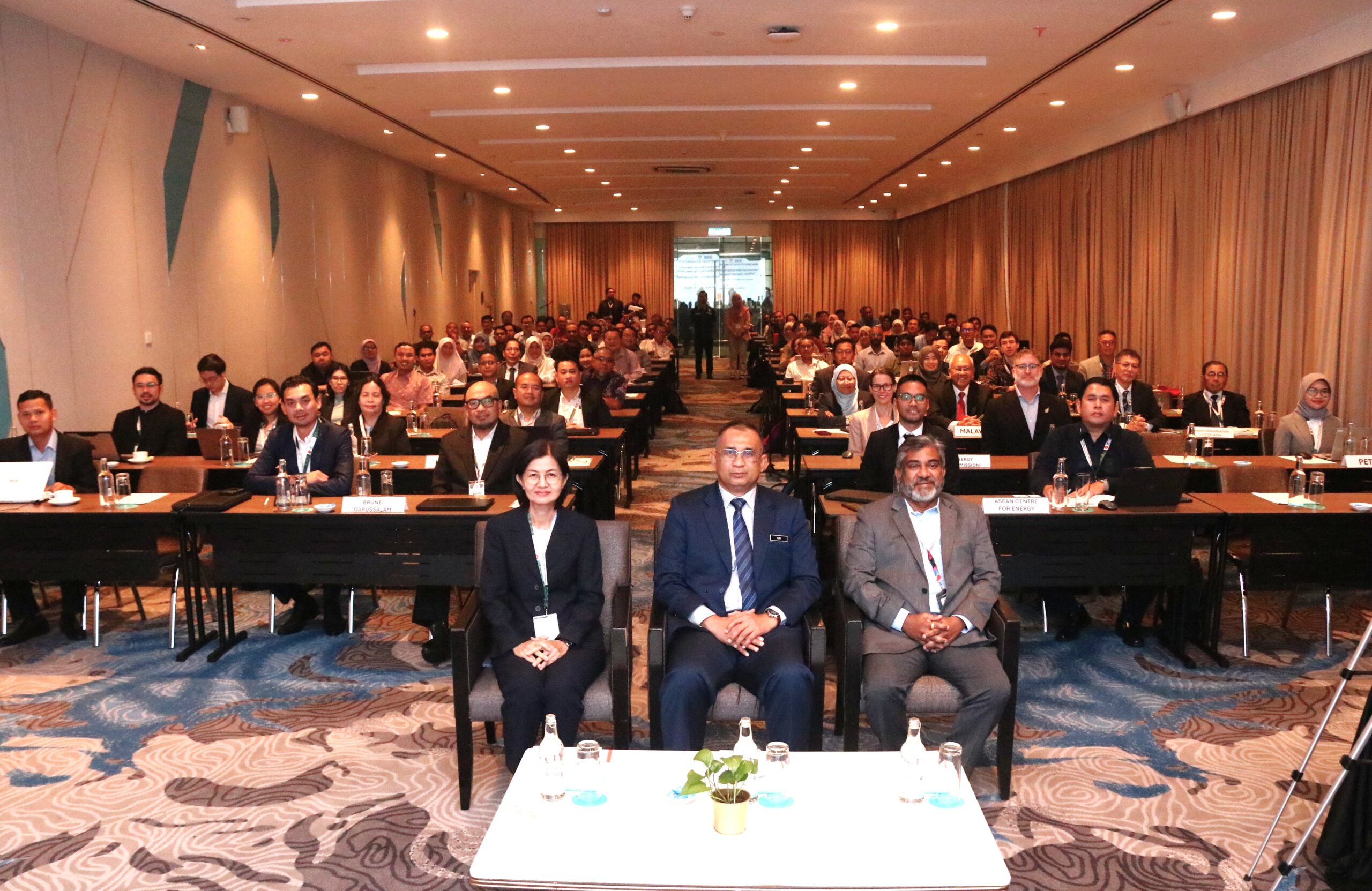
Photo 1. Workshop group photo with Rungrawee Yingyuad, DEDE, Thailand (left), Asdirhyme bin Abdul Rasib, Ministry of Energy Transition and Water Transformation, Malaysia (centre), and Ir. Dr. Sanjayan Velautham, Energy Commission, Malaysia (right)
“We shape our buildings, thereafter they shape us.”
Reflecting upon these insightful words by Sir Winston Churchill, the ASEAN Centre for Energy (ACE), in collaboration with the Energy Commission of Malaysia, hosted the ASEAN Energy Efficiency & Conservation Workshop Towards Net-Zero ASEAN Buildings: Advancing Building Energy Certification, Key Energy Efficiency Measures and Features for Zero Energy Building, and Energy Service Companies, on 21 May 2025 in Putrajaya, Malaysia.
The workshop brought together policymakers, international organisations, industry leaders, academia, and energy experts from across the region to share views, insights, and thoughts on pathways towards net-zero buildings in ASEAN. In total, the workshop was attended by 102 participants from nine (9) ASEAN Member States, with 96 attending in person and 6 joining online via the Microsoft Teams platform. The attendance demographics were 70% male and 30% female.
Opening Remarks and Scene Setting
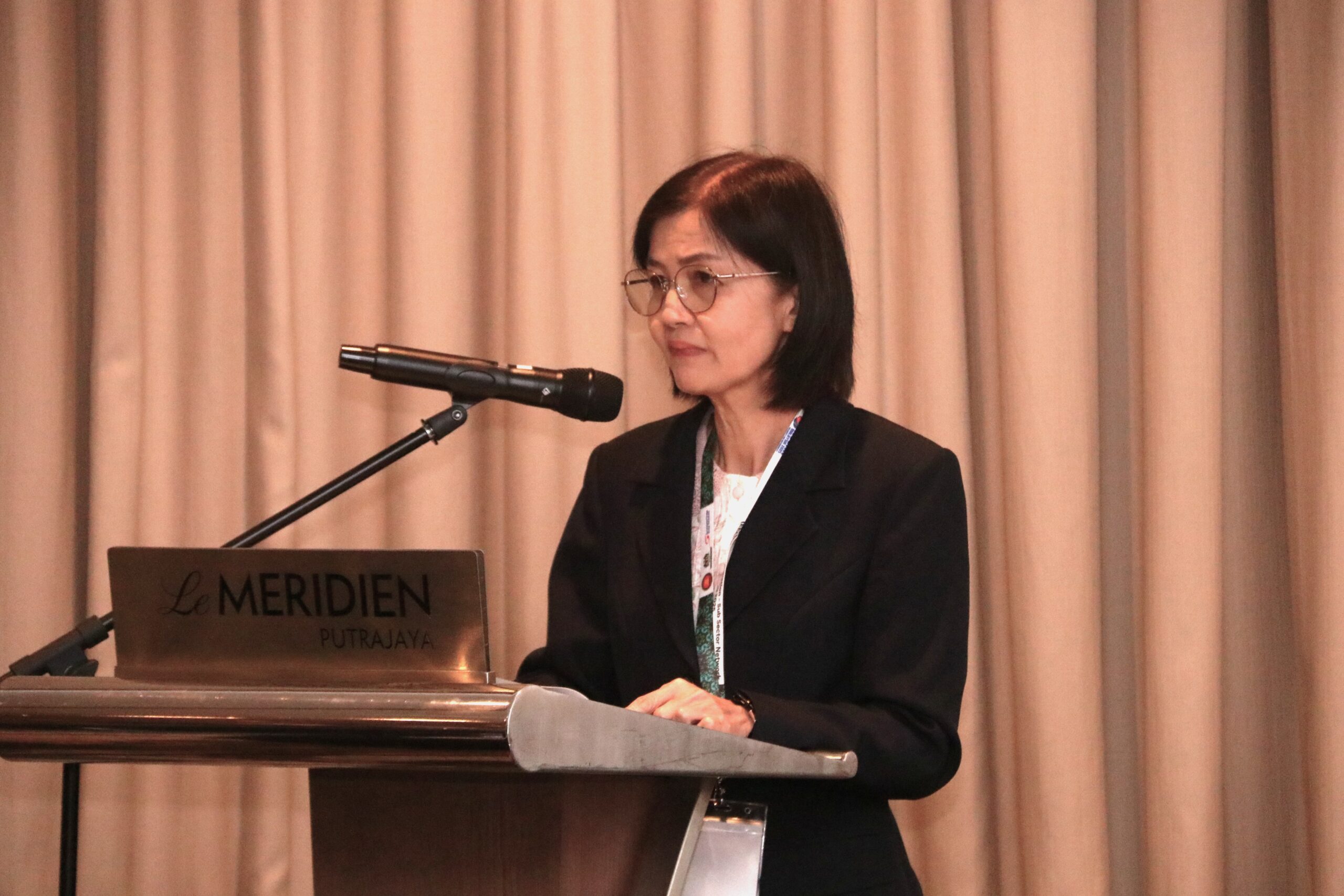 |
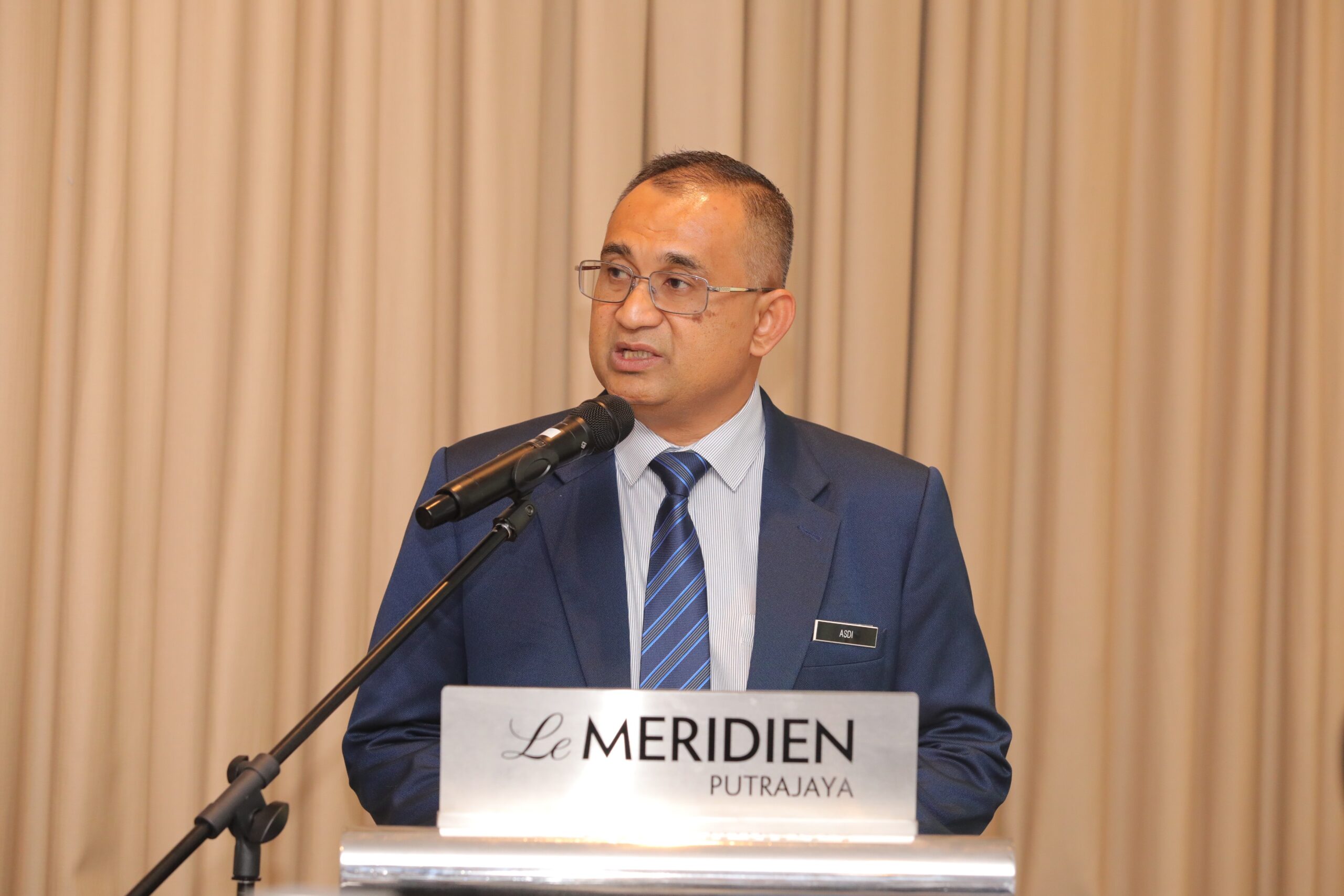 |
Photo 2. Opening remarks delivered by Rungrawee Yingyuad, DEDE, Thailand (left) and Asdirhyme bin Abdul Rasib, Ministry of Energy Transition and Water Transformation, Malaysia (right)
The workshop commenced with opening remarks delivered by distinguished representatives from the host and organising parties. Asdirhyme bin Abdul Rasib, Undersecretary of Sustainable Energy from Malaysia’s Ministry of Energy Transition and Water Transformation, emphasised the critical role of the building sector in the pursuit of energy transition, highlighting Malaysia’s recent implementation of the Energy Efficiency and Conservation Act 2024 as a key legislative step towards national sustainability goals.
Rungrawee Yingyuad, Renewable Energy Expert at Thailand’s Department of Alternative Energy Development and Efficiency (DEDE) and Energy Efficiency & Conservation Sub-Sector Network (EE&C-SSN) Coordinator, reinforced ASEAN’s collective commitment to enhancing building energy performance, advocating for strengthened regional collaboration on policies, technologies, and finance to achieve net-zero buildings. Lastly,
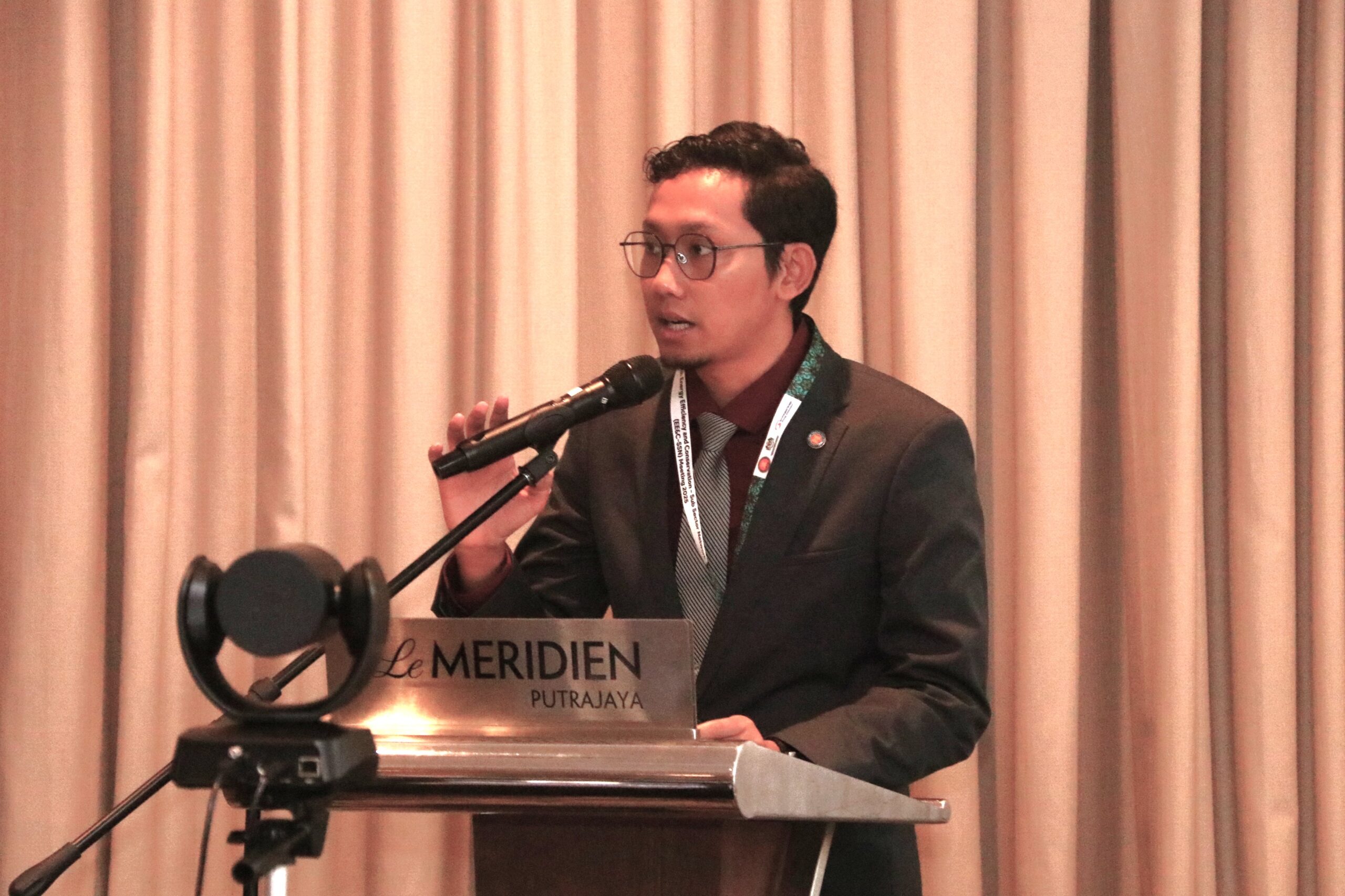 |
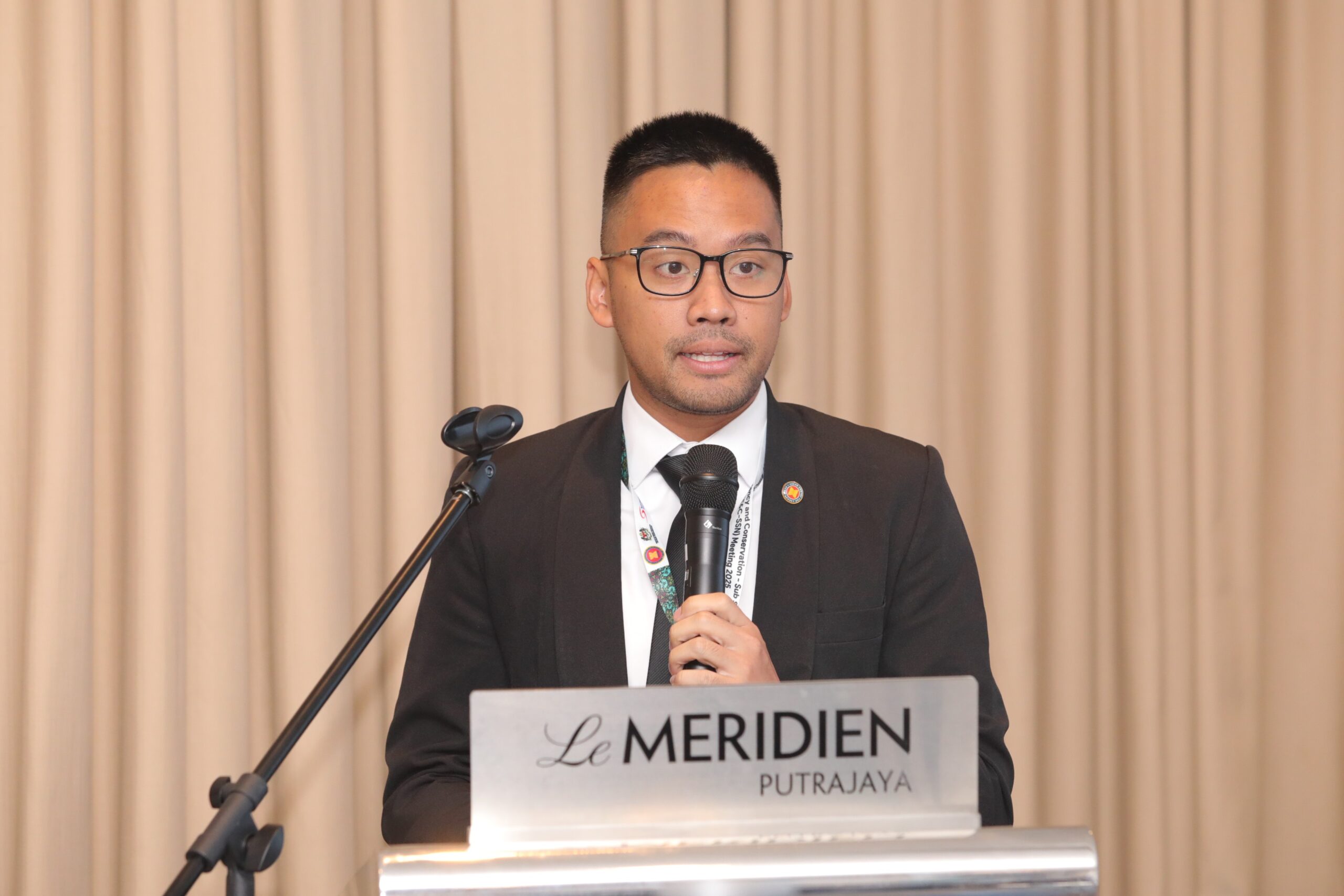 |
Photo 3. Dr. Zulfikar Yurnaidi, ACE, delivered opening remarks (left), and Rizky Aditya Putra, ACE, presented the scene setting (right)
Dr. Zulfikar Yurnaidi, Manager of Energy Modelling and Policy Planning (MPP) & acting Manager of the Energy Efficiency and Conservation (CEE) Department at ACE, underlined that sustainable building practices must align policy frameworks, market mechanisms, and technological innovation, affirming ACE’s ongoing support through initiatives such as the Asia Low Carbon Buildings Transition (ALCBT) and Programme for Energy Efficiency in Buildings in ASEAN (PEEB ASEAN).
Before commencing the panel discussions, Rizky Aditya Putra, Programme Manager of the Asia Low Carbon Buildings Transition (ALCBT) of ACE, delivered a scene-setting presentation on ASEAN’s Journey towards Net-Zero Buildings. He highlighted the urgency for ASEAN Member States to align their building sector strategies with broader net-zero targets, citing the sector’s substantial energy consumption and emissions footprint. Notably, he shared that buildings account for 22% of total final energy consumption in ASEAN, with 55% of that consumption coming from electricity use, particularly for air-conditioning and lighting.
He outlined that ASEAN Member States have implemented a range of energy efficiency measures in the building sector, including mandatory energy management systems, building energy codes, and voluntary green building certification schemes. He also shared that several AMS have initiated steps towards Zero Energy Building (ZEB) development through roadmaps, pilot projects, voluntary standards, and incentive programmes.
Panel 1 – ASEAN Building Energy Certification Towards Net Zero Buildings
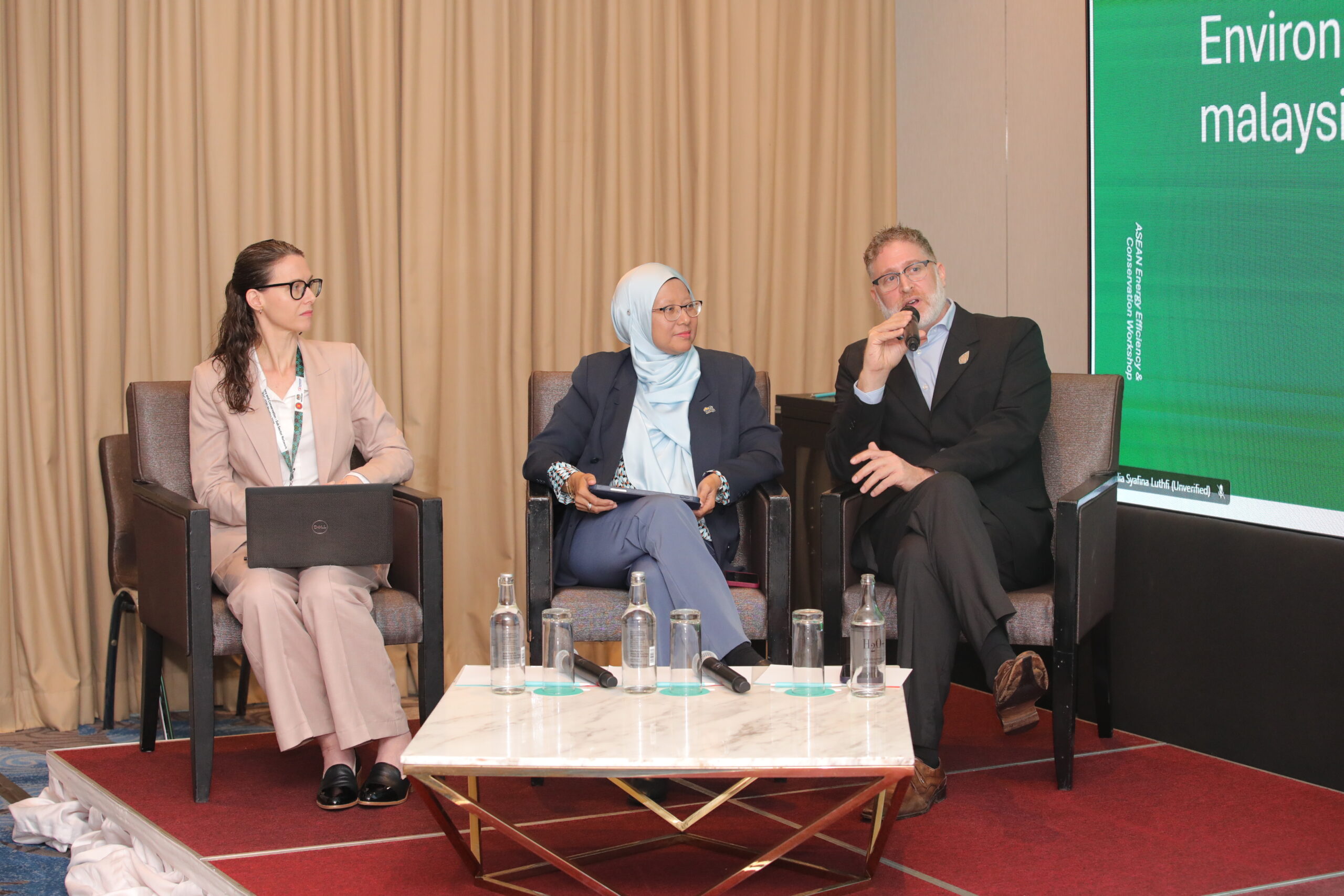
Photo 4. Panel 1. Left photo: Renee Stephens, IEA (left), Puan Norhasliza Binti Mohd Mokhtar, MGTC (centre), and Mitch Gelber, MGBC (right) as panel speakers.
Panel 1 featured discussions on the critical role of building energy certification schemes in steering ASEAN towards net-zero buildings, moderated by Rio Jon Piter Silitonga, Senior Officer of the Energy Efficiency and Conservation Department at ACE. Expert panellists included Puan Norhasliza Binti Mohd Mokhtar of the Malaysian Green Technology and Climate Change Corporation (MGTC), James Tan from the Singapore Green Building Council, Mitch Gelber of the Malaysia Green Building Council (MGBC), and Renee Stephens representing the International Energy Agency (IEA).
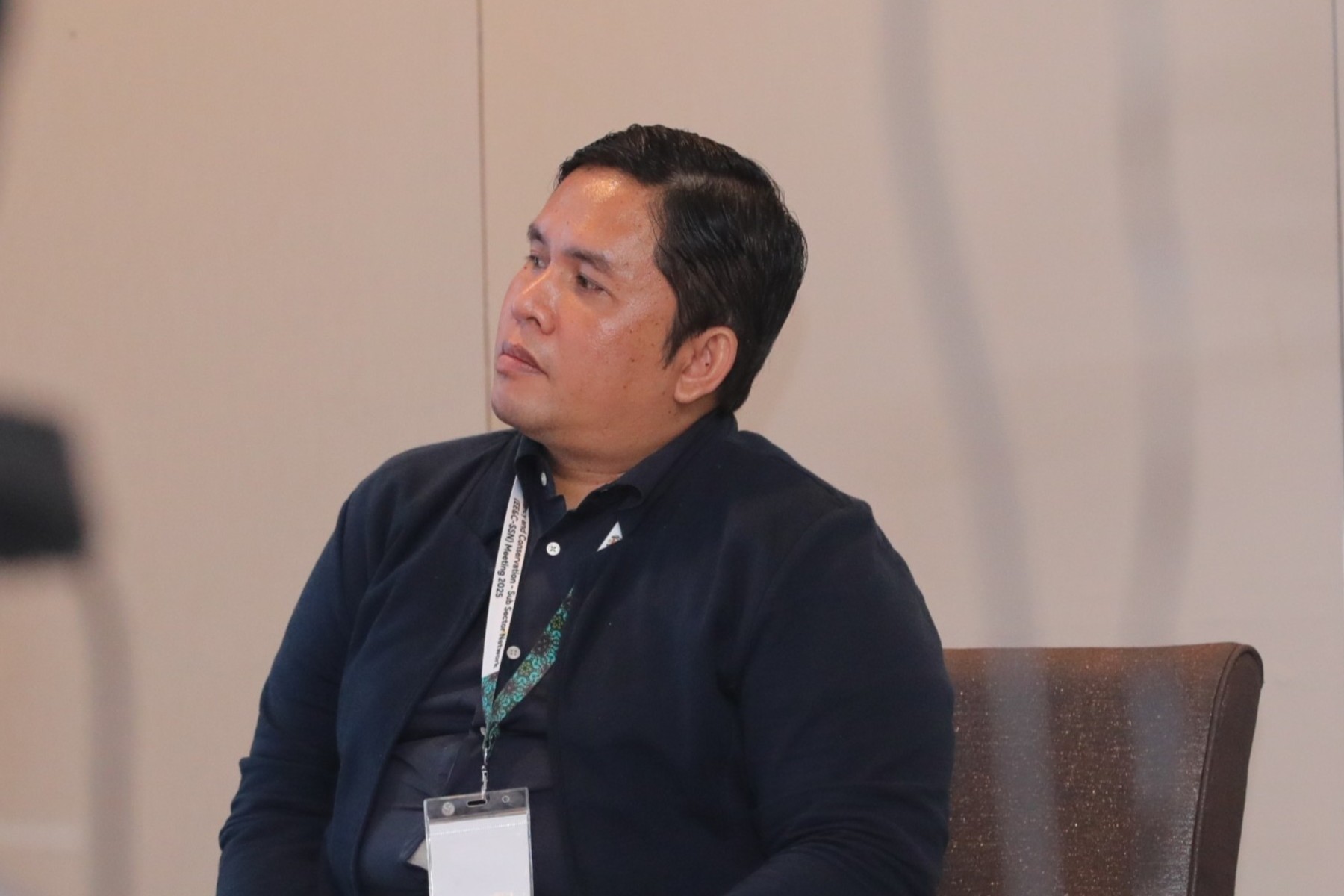 |
 |
Photo 5. Panel 1. Mr. Rio Jon Piter Silitonga, ACE, as panel moderator (left) and James Tan, SGBC as panel speaker (right)
The panellists shared insights on various national and international certification frameworks, such as Malaysia’s Energy Management Gold Standard (EMGS), Singapore’s Green Mark Certification, and global best practices highlighted by the IEA. They underlined energy performance certification schemes as powerful tools for driving both market transformation and regulatory alignment, emphasising that reliability and accuracy are fundamental to the effectiveness of the certification, while stressing the importance of integrating sustainability into building codes and practices.. Discussions also emphasised the need for comprehensive data on embodied and operational carbon emissions, particularly in managing energy-intensive facilities like data centres.
Panel 2 – Energy Efficiency Policy, Key Strategies and Technology towards Zero Energy Buildings (ZEB)
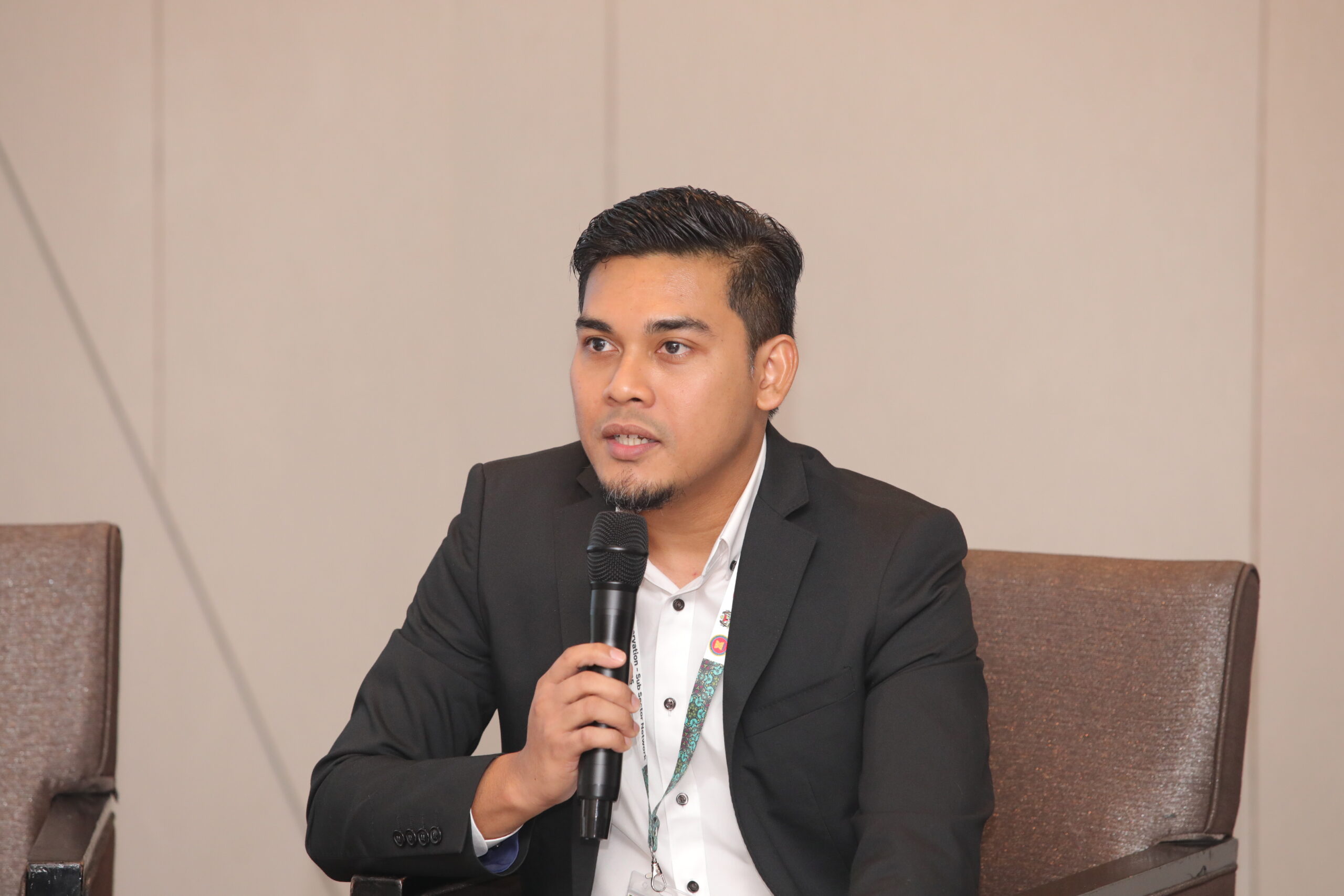 |
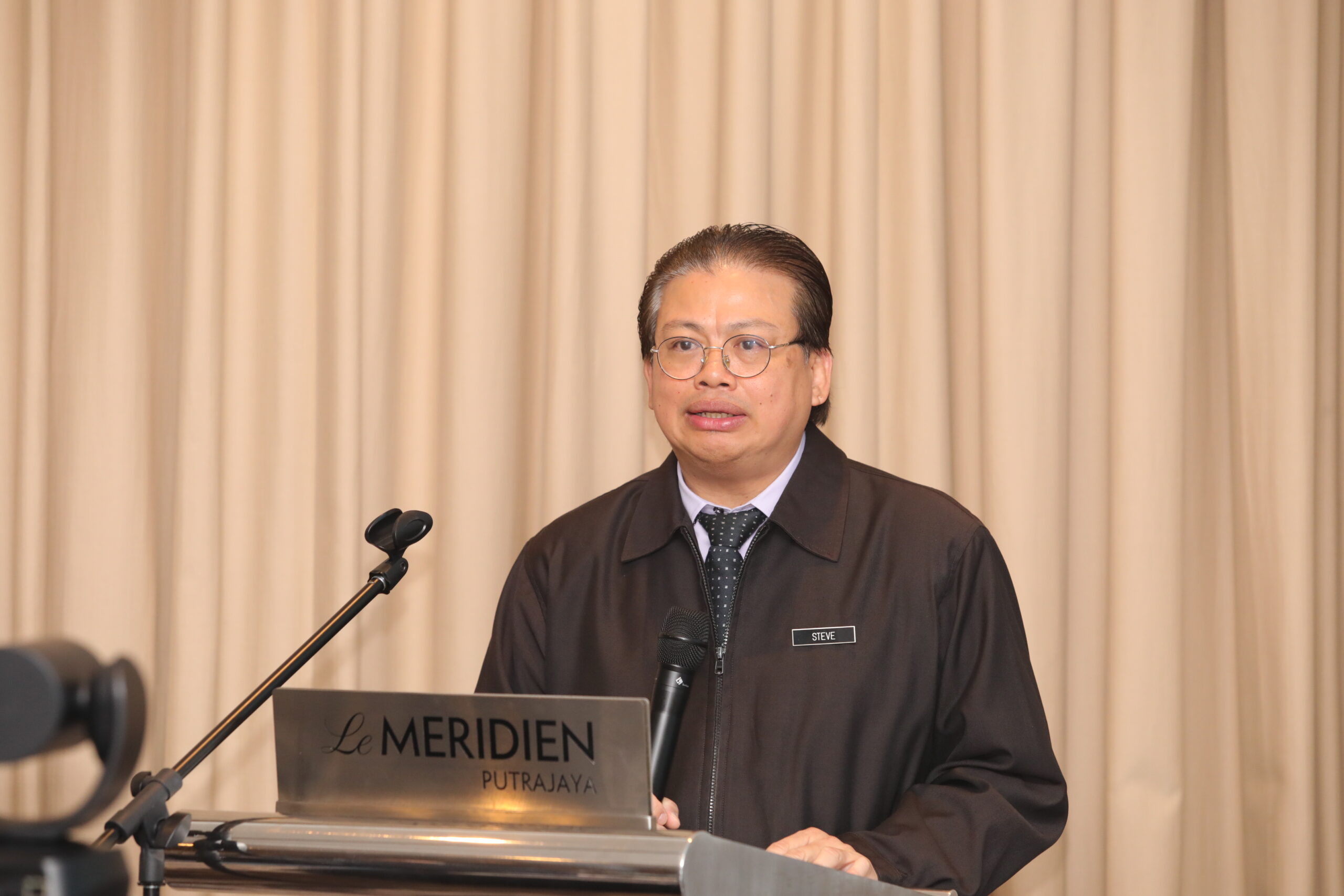 |
Photo 6. Panel 2. Ahmad Firdaus Bin Kamarazaman, Energy Commission, Malaysia, as panel moderator (left), and Ts. Steve Anthony Lojuntin, SEDA, Malaysia, as panel speaker (right)
Panel 2, moderated by Ahmad Firdaus Bin Kamarazaman of the Energy Commission of Malaysia, addressed energy efficiency policies, strategies, and technologies vital for achieving Zero Energy Buildings (ZEB). This session brought together Ts. Steve Anthony Lojuntin from Malaysia’s Sustainable Energy Development Authority (SEDA), Saikiran Kasamsetty of the United Nations Environment Programme (UNEP-U4E), Kai Hoffman from Deutsche Gesellschaft für Internationale Zusammenarbeit (GIZ), and Julie Robles of the Global Green Growth Institute (GGGI – ALCBT).
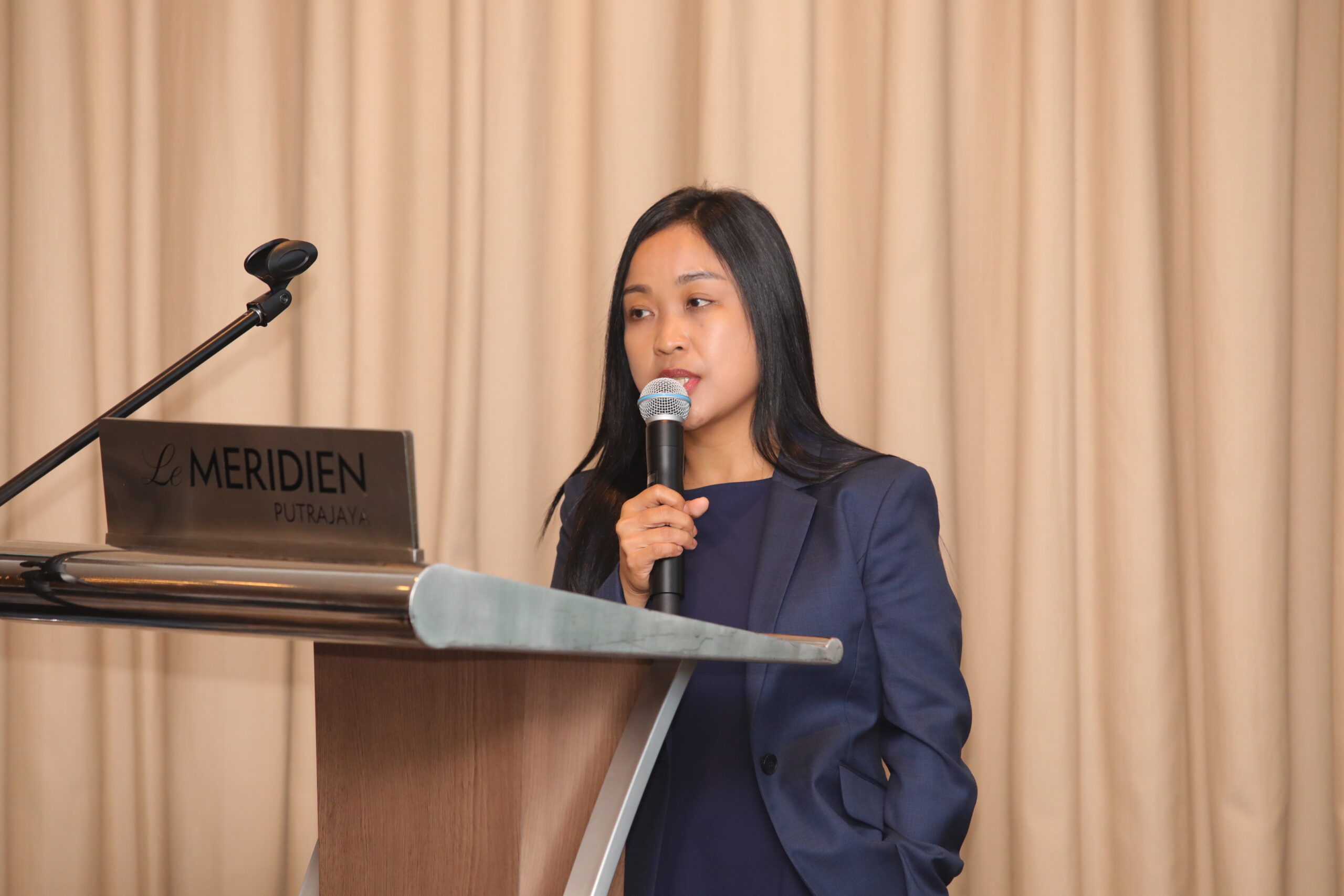 |
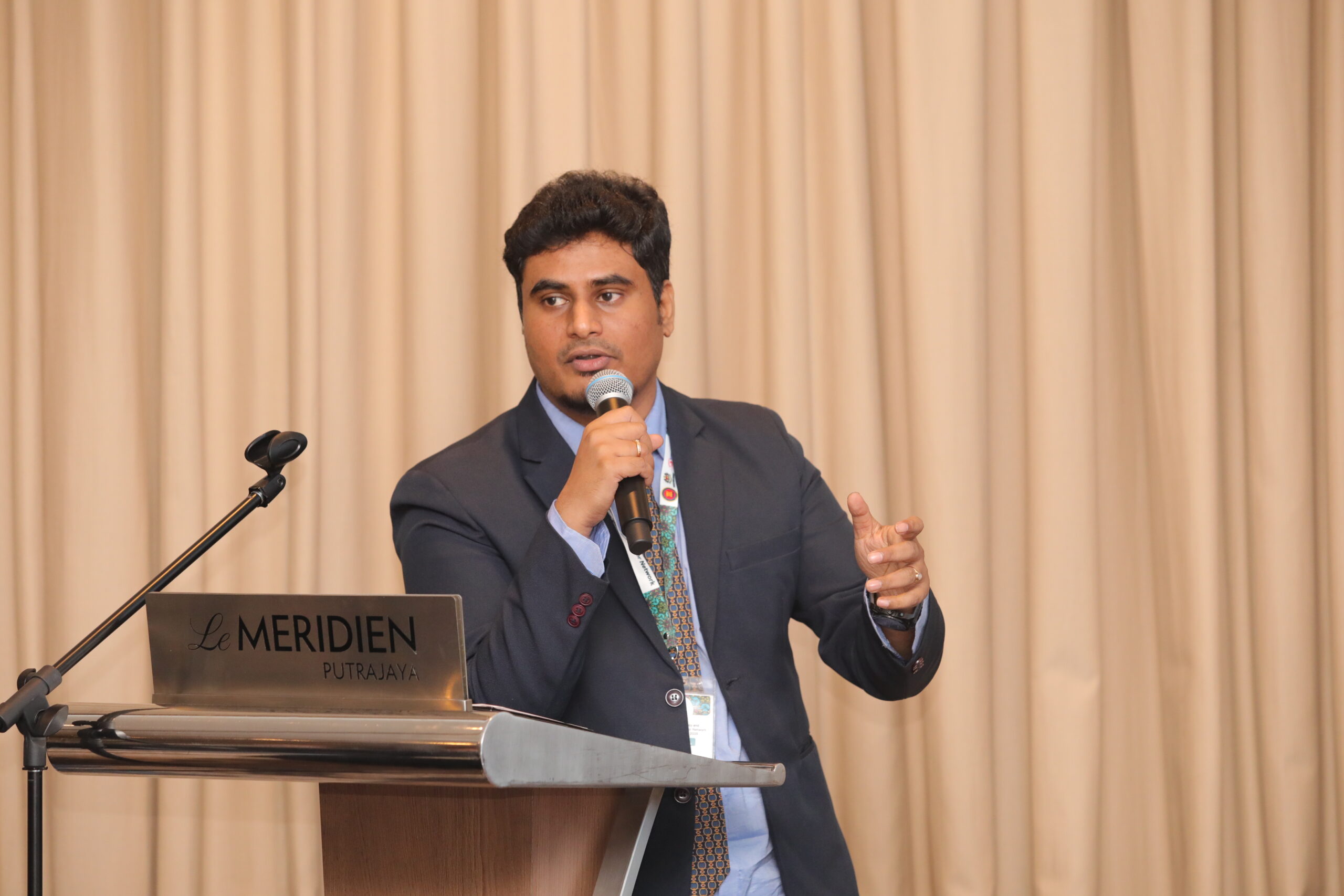 |
Photo 7. Panel 2. Julie Robles, GGGI – ALCBT (left), and Saikiran Kasamsetty, UNEP-U4E (right) as panel speakers
During this session, panellists examined innovative approaches to making zero-energy buildings both feasible and financially viable, highlighting methods such as energy performance contracting combined with renewable energy systems. Additionally, the significance of Green Public Procurement (GPP) as an influential market driver was underscored by UNEP-U4E, with concrete examples of appliance standards and procurement criteria provided. The discussion was further enriched by GIZ and GGGI, which emphasised the necessity of sustainable consumption guidelines and robust green financing mechanisms to facilitate broader adoption of zero-energy buildings throughout ASEAN.

Photo 8. Panel 2. Kai Hoffman, GIZ, as panel speaker
Panel 3 – Unlocking ESCO Potential in ASEAN Buildings: Policy, Finance, and Global Best Practices
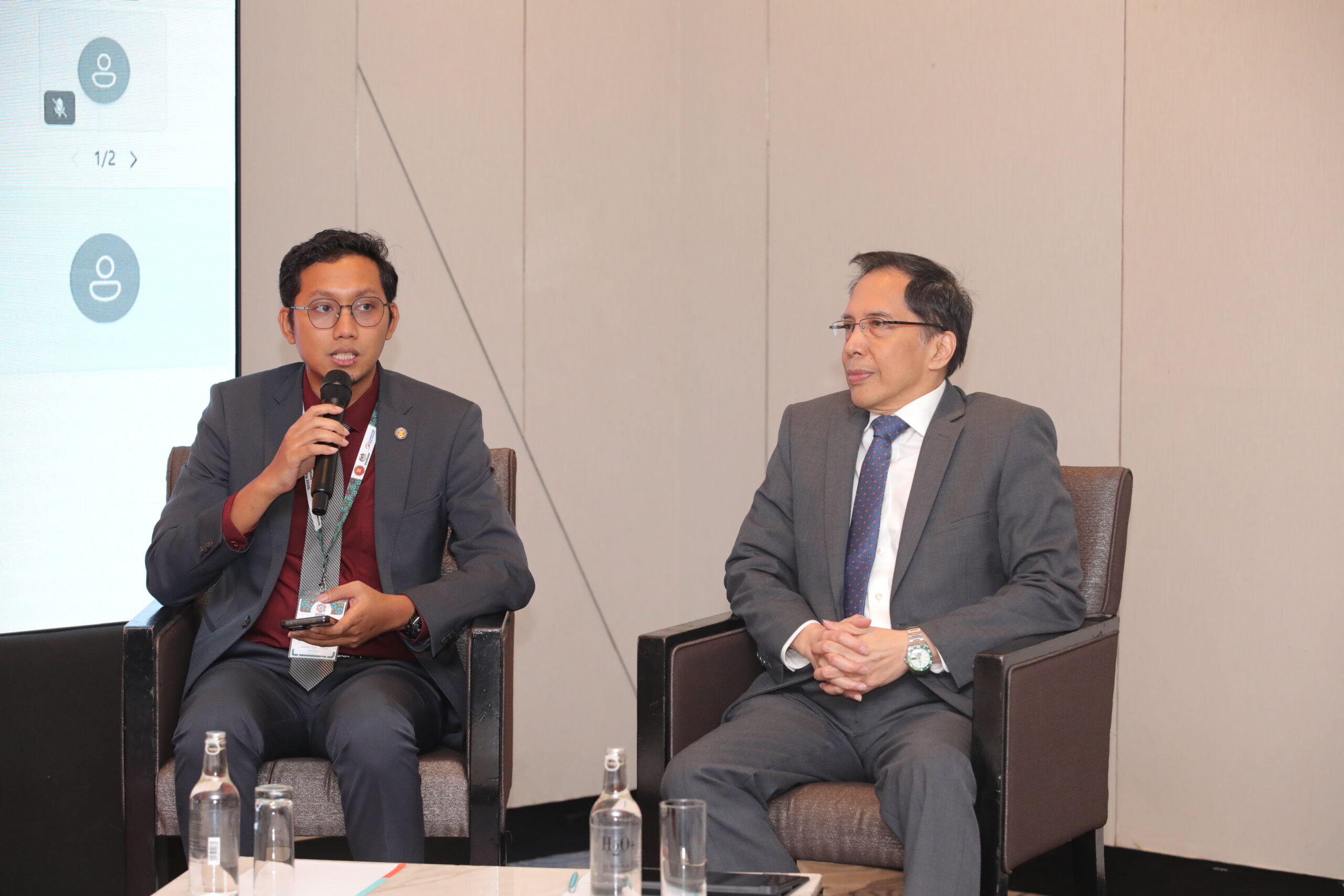 |
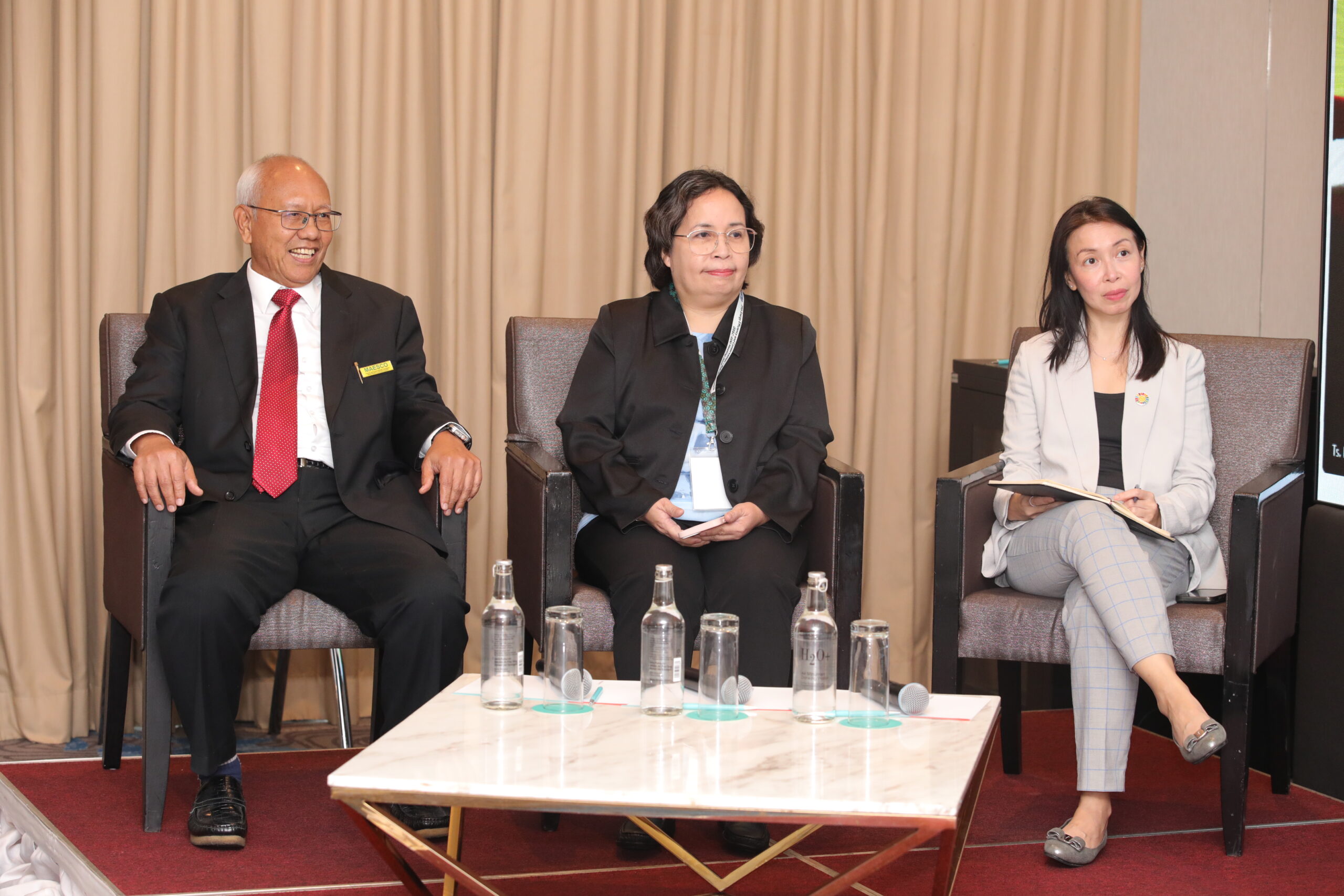 |
Photo 9. Left photo: Dr. Zulfikar Yurnaidi, ACE, as panel moderator (left), Alexander Ablaza, APEIA, as panel speaker.
Right photo: Ar. Zulkifli Bin Zahari, MAESCO, Lana Rose A. Manaligod, DOE Philippines, and Jacqueline Lam, SEforAll, as panel speakers.
In Panel 3, the focus shifted towards strengthening the ASEAN Energy Service Companies (ESCOs) market, an essential mechanism for realising net-zero buildings, moderated by Dr. Zulfikar Yurnaidi of ACE. The panellists included Ar. Zulkifli Bin Zahari from the Malaysia Energy Service Companies Association (MAESCO), Lana Rose A. Manaligod of the Philippines’ Department of Energy, Jacqueline Lam representing Sustainable Energy for All (SEforAll), and Alexander Ablaza from the Global ESCO Network and Asia-Pacific ESCO Industry Alliance (APEIA).
Panellists outlined both national and international experiences in developing the ESCO market, demonstrating ESCOs’ pivotal role in overcoming financial and implementation barriers through shared and guaranteed savings models. Discussions highlighted regulatory frameworks, such as Malaysia’s National Energy Transition Roadmap (NETR) and the Philippines’ Energy Efficiency and Conservation Act, which provide essential governmental support for ESCO initiatives.
Additionally, APEIA highlighted that Southeast Asia could see up to USD 892 billion in ESCO-related investments by 2040, with a potential for ESCOs to mobilise over USD 600 billion in off-balance sheet capital. However, unlocking this potential requires overcoming barriers such as limited access to finance and sector fragmentation. Complementing this, SEforALL underscored the need for regional best practices, innovative business models, and increased customer awareness. They also noted the importance of developing de-risking instruments and regional platforms to connect project developers with financiers, further emphasising that capacity-building and knowledge-sharing are key to accelerating ESCO market growth across ASEAN.
Closing Remarks
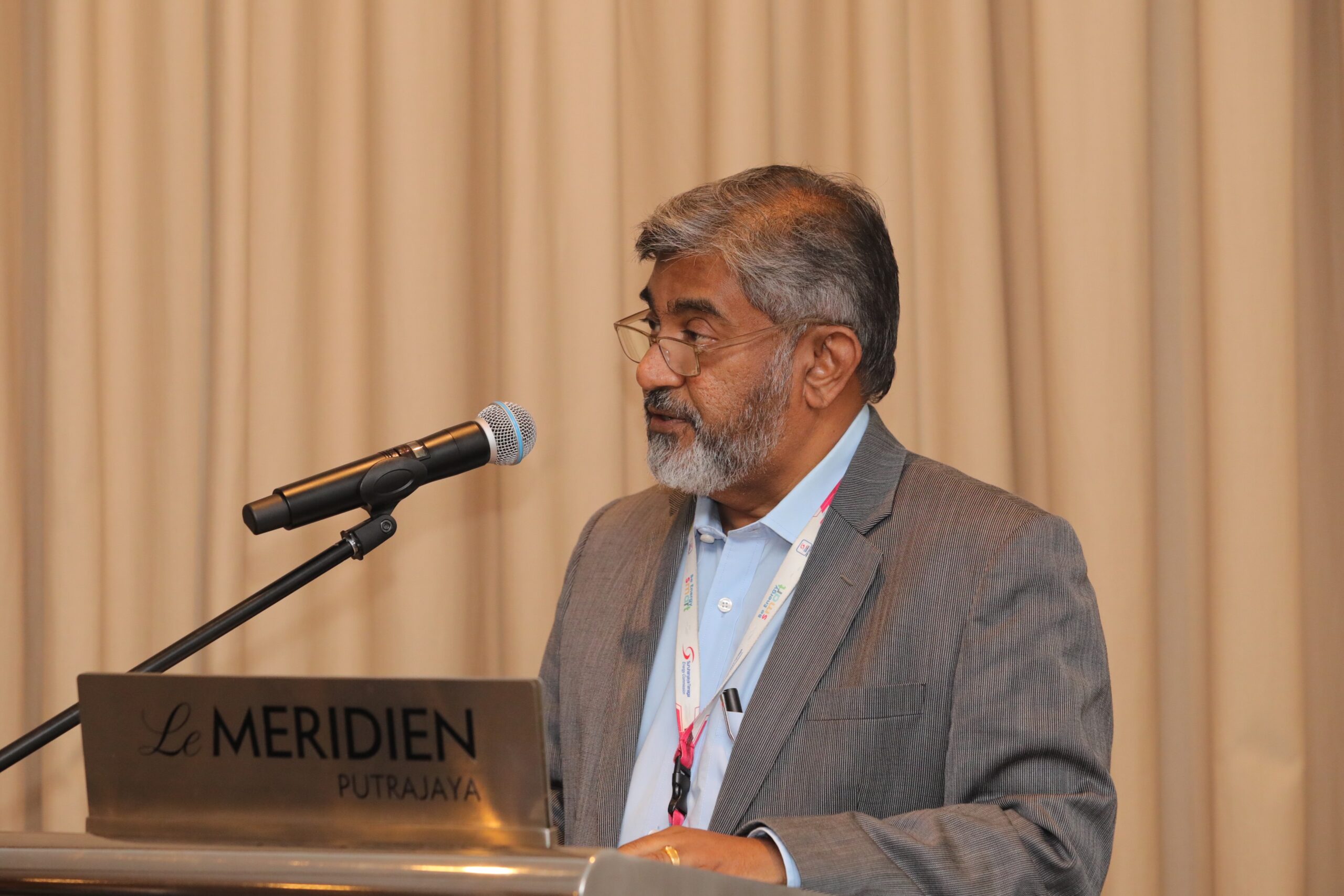
Photo 10. Closing remarks delivered by Ir. Dr. Sanjayan Velautham, Energy Commission, Malaysia
Closing the workshop, Ir. Dr. Sanjayan Velautham, Chief Operating Officer of the Energy Commission of Malaysia, reiterated the urgency and collective responsibility of achieving ASEAN’s net-zero building goals. He commended the productive dialogues fostered by ACE and underscored the significance of initiatives in driving regional cooperation. Reinforcing ACE’s continued commitment, Dr. Velautham urged participants to leverage the knowledge and networks established through the workshop, ensuring that collaborative efforts translate into tangible actions towards a sustainable and energy-efficient buildings in ASEAN.
